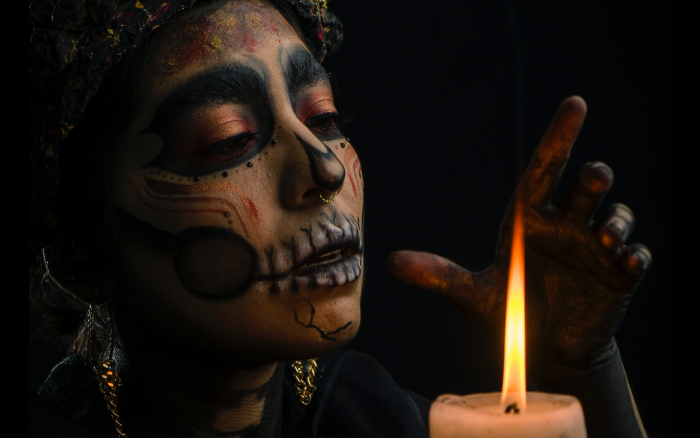I’ve heard many people affirming that all stories are love stories.
I’m not against that idea; I do believe that love is the core of every story that is told in a book, in a film, in a painting, in a song— maybe even in an anonymous radio call. But I’m also a firm believer that all stories are about death.
Stories are built on decisions (what we choose to do, what we choose not to do, what we say, what we don’t say), so what is the reason for all that self-doubt? Why don’t we do everything, anything we want?
Because we know we don’t have enough time. All these stories make sense because we have a finite life span.
Is it possible to love everyone? No. Will we die? We will.
We try to keep the concept of death hidden, which makes it feel more like a stranger—and that just makes it scarier. Even Jesus Christ was scared of death, but that didn’t mean he wanted to renounce it from its existence. After all, what’s the element of his story that keeps millions of people always remembering it by heart? Death. Why do people continue to remember that story? Because it is also full of love.
Love is as strong as death.
The fact that we are all meant to die doesn’t change the fact that we’re all meant to love as well. In love, we have the privilege of being selective, or that’s what we like to believe. Think of your favorite movie; who do you always root for? The main character must make a decision, whether it’s taking the job, choosing the guy, or catching the train. If the character wasn’t going to die at some point, it would be pointless to pay attention to his or her decisions.
The weight of a decision carries the knowledge that choosing a job over another, choosing a lover over another, limits our different possible lifestyles. What is the element that makes the lifestyle we choose meaningful over any other? We do our best to embrace and enjoy it because it won’t last forever.
Death will come at some point, but like everything in life, there’s a catch.
Death stops our bodies from working but it doesn’t stop love. Twenty years can pass, but we still remember an old friend or relative who’s gone, and we feel that pang in our chest. Why is that pang happening? Because there’s still love in there. And love and pain are both faces of the same coin. We have to channelize the pain, and love has to go somewhere because it’s still there. We must let go of this idea that love eventually fades if that person is not around anymore.
Life is short? Wrong. Life is long. Love can last decades.
Everyone has mountains to climb, and sometimes we get caught up in that one specific mountain we can’t seem to climb, and that’s what makes our life shorter. Sometimes we need to take a look around and remember where we’ve been. Remember the people who were by our side.
There will always be someone who’s going to remember you, to say your name out loud, to share an anecdote about you. This is what makes life worth it, and that is where you can see the thread that ties both love and death together. It’s not a thread you’re supposed to break; no matter how much time passes, the thread can’t be cut in half because one is part of the other—they’re meant for each other.
We are always carrying the shadow of death while living the reality of love until one day death becomes real, and the only proof that we were here is the love planted in different people in this world, like footprints on the sand.
Our prints may be in the form of objects or products such as books, videotapes, or songs which is more tangible proof. The reason they exist is that love kept their creations going. Each story exists because of love and has meaning because it has an end. Death is the end of all stories, and all stories are about love, which comes full of losses that only make it stronger.
Death is not love’s enemy. They are bound together in the same way we are bound to some people forever, whether they’re still here or not.








Read 1 comment and reply